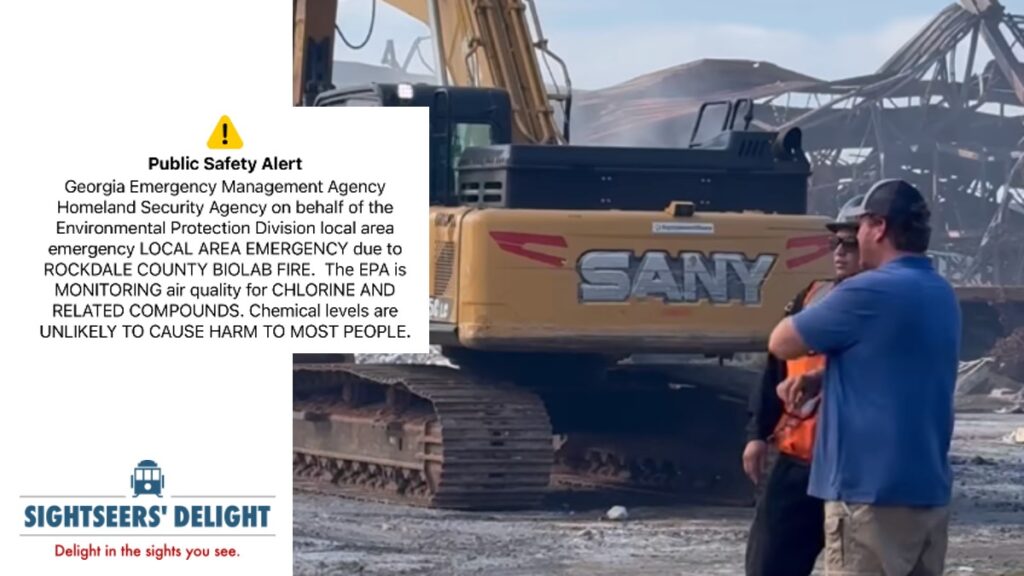State and federal authorities continue to monitor air quality levels as weather patterns change throughout metro Atlanta following a fire at a BioLab facility in Conyers.
Overnight, monitoring around the Bio Lab facility detected some exceedances above the action level for chlorine. Workers on site have continued to make progress in neutralizing the product. As the neutralization process continues, periodic increases in chlorine levels around the facility are expected.
The U.S. Environmental Protection Agency, the Georgia Environmental Protection Division and local officials will have the Trace Atmospheric Gas Analyzer, a self-contained mobile laboratory capable of real-time outdoor air or emissions monitoring.
The current weather models show the winds will shift from the east to the west after sunset Wednesday. Smoke is predicted to settle toward the ground as it moves toward Atlanta.
Officials said there is a high likelihood that people across metro Atlanta will wake up on Thursday morning seeing haze and smelling chlorine.
As the air settles each evening, smoke also settles toward the ground. The smell and haze should dissipate as the air lifts back up in the afternoon and evening. Chlorine has a very low odor threshold, meaning you can smell it before it reaches a harmful level.
Officials said chlorine levels in the air sit at safe levels, however, out of an abundance of caution, continue to follow the advice of your local EMA’s.
Anyone who experiences symptoms should contact their health provider or the Georgia Poison Center at (404) 856-6252.
- Limit your activities outdoors and stay inside and away from the smoke.
- Keep indoor air as clean as possible. Keep windows and doors closed. Run your air conditioner only if you can close the fresh air intake and use re-circulated air.
- The elderly, children, and people with compromised immune systems should stay indoors or limit outdoor activities to prevent exposure to smoke.
- If you have asthma or another lung disease, follow the advice of your doctor or other health care providers about your respiratory management plan and medicines.
